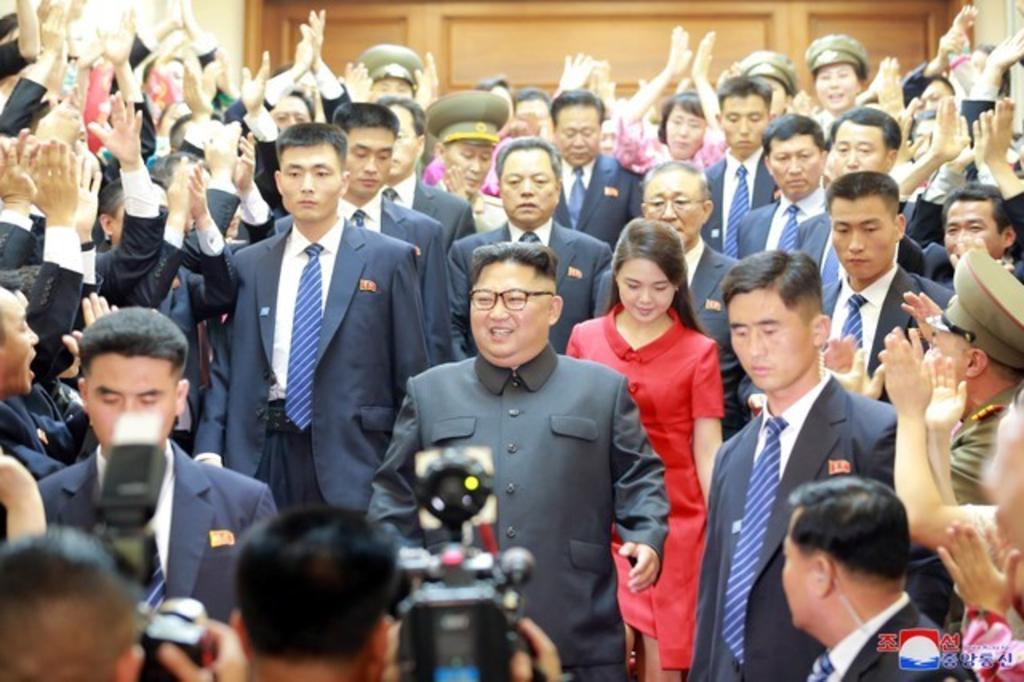Media Report

- The New York Times reports: "Propaganda departments in China and North Korea were in full swing on Wednesday as Kim Jong-un, the North Korean leader, concluded a two-day tour of China that painted the once-reclusive autocrat as a forward-looking leader. After meeting with President Xi Jinping and briefing him on the summit meeting with President Trump in Singapore last week, the North Korean leader was portrayed in the Chinese state media as eager to learn how to turn a developing nation into a global superpower. In North Korea, a propaganda machine that for decades turned out anti-American slogans and that denigrated South Koreans struck a new conciliatory tone, publishing posters this week that heralded unity on the Korean Peninsula."
- Bloomberg reports: "One top fund manager has been shifting to cash since April, worried that trade friction would extend a slump in Chinese stocks. And so far, Yiqian Jiang, head of China equities at Harvest Global Investments Ltd., has been right to be cautious. The MSCI China Index is down 11 percent from a January peak, with losses extending this week as the trade spat between U.S. President Donald Trump and China intensified... Jiang has boosted cash holdings in her flagship fund to the highest level since she started managing the fund three years ago. Recently, cash comprised about 15 percent of assets... Chinese shares tumbled after the U.S. president's latest move, with the MSCI China gauge sinking 3 percent on Tuesday."
- The Wall Street Journal comments: "The Chinese government's Made in China 2025 blueprint reveals Beijing's audacious plans to dominate emerging technology industries. Many of these targeted sectors, such as artificial intelligence and robotics, have clear implications for defense. China seeks to achieve its goal of economic and military domination in part by acquiring the best American technology and intellectual property. President Trump's new tariffs will provide a critical shield against this aggression. China acquires American technology in multiple ways. Theft, both physical and cyber, occurs through orchestrated industrial espionage campaigns. For years the U.S. intelligence community has acknowledged China as a persistent leader in economic espionage. Many American companies are forced to accept technology transfers to gain access to the Chinese market."
Calendar
- 2018-06-20 White House says China's 'economic aggression' is a global threat
- 2018-06-19 North Korea’s Kim makes another trip to China. That complicates things for Trump.
- 2018-06-18 Google, Rebuilding Its Presence in China, Invests in Retailer JD.com
- 2018-06-15 Tough US tariffs on China could begin as early as Friday
- 2018-06-14 Trump Says He May Upset China on Trade as U.S. Tariffs Loom
- 2018-06-13 The Unexpected Winner From the Trump-Kim Summit: China
- 2018-06-12 China suggests sanctions relief for North Korea after Trump-Kim summit
- 2018-06-11 G7 chaos is a PR win for China
- 2018-06-10 China, Russia Solidify Growing Eastern Bloc as Trump Rattles G-7
- 2018-06-08 US expands China health alert after acoustic incident
News
- The New York Times As Kim Ends Beijing Visit, China and North Korea Craft New Messages
- Bloomberg Top Fund That Was Right On U.S.-China Trade War Is Boosting Cash
- CNN China censors John Oliver after scathing 20 minute video
- CNBC China's boycott of US goods remains a real threat
- Reuters U.S. lawmakers want Google to reconsider links to China's Huawei
- CNBC The dollar keeps rising against China's yuan. That's set to continue
- Business Insider How China tried to shut down Australian media coverage of its debt-trap diplomacy in the Pacific
- CNBC China's Xiaomi secures 7 cornerstone investors for its $6.1 billion Hong Kong IPO, including Qualcomm
- The New York Times Britain Holds Up China Aerospace Deal Over National Security
- CNBC China has an Iran oil lever over Trump, and it's all playing out at OPEC meeting
- Reuters Oil traders ready for musical chairs as China tariffs loom
- CNBC Chinese investment in the US drops 90% amid political pressure
Commentary
- The Wall Street Journal Trump's Tariffs Are a Defense Against China's Aggression
- SupChina China Unsolved: Who Poisoned Zhu Ling?
- TechCrunch China's VIPKID raises another $500M reportedly at $3B+ valuation
- The Sydney Morning Herald Looking north: PNG signs on to China's Belt and Road Initiative
- The Wall Street Journal An American Lean-In Guru in China
- Bloomberg Nightmare on China's Wall Street Part II
- Wired China Won't Solve the World's Plastics Problem Any More
- TechCrunch India's budget hotel network unicorn OYO expands into China